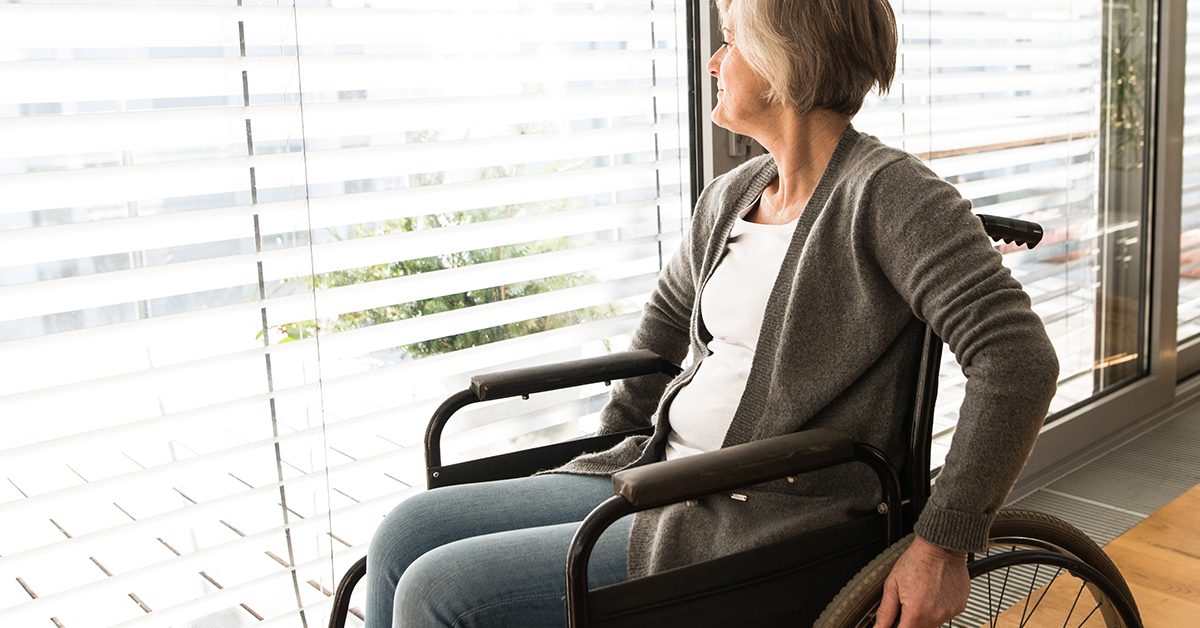Toledo-based The Fair Housing Center and eleven partner fair housing organizations in six different states announce that a settlement has been reached in a federal civil rights lawsuit against a group of developers, owners, investors, and operators of senior housing generally known as the Clover Group. The settlement will improve access for persons with disabilities at 50 senior apartment buildings located across the Northeast and Midwest.
The settlement agreement requires an estimated $3 million in retrofits to public and common use areas at the properties to improve accessibility for individuals with disabilities. These include providing accessible routes around the exterior and common use areas, adding additional ramps and curb cuts, and replacing sidewalks that have excessive slopes.
Clover Group will also set aside funds totaling $3.375 million to pay for modifications to individual units at the request of any resident or applicant at the 50 properties included in the agreement. These modifications to improve access for individuals who use wheelchairs or have other mobility limitations could include replacing sliding doors at patios or balconies to provide a wider opening and lower threshold, providing ramps at patio or balcony doors, adding grab bars, replacing bathroom vanities or sinks, installing roll-in showers or hand-held showers, lowering kitchen countertops, and lowering thermostats and light switches. Current tenants and new applicants will be notified of the availability of funds for unit modifications to meet their needs.
Clover Group will also pay $750,000 to the fair housing organizations to compensate them for staff time and other resources expended to investigate the alleged accessibility violations and for attorneys’ fees. Additionally, any Clover Group employees that are involved in the design and construction of multifamily housing will complete training on the accessibility requirements of the Fair Housing Act.
Under the federal Fair Housing Act’s design and construction accessibility requirements, all multi-family housing with four or more units that was built for first occupancy on or after March 13, 1991 must be accessible to wheelchair users and individuals with other physical disabilities. This includes seven technical requirements to ensure compliance such as accessible routes and sufficient maneuvering space in bathrooms and kitchens. During a multi-year joint investigation, the fair housing organizations identified issues that they alleged were violations of these requirements and filed a lawsuit in March in the U.S. District Court for the Northern District of New York. Several of the fair housing groups are plaintiffs in a related lawsuit in which the organizations allege that Clover Group entities have engaged in other forms of disability discrimination by refusing to grant reasonable accommodations and imposing a surcharge for units in accessible locations.
Properties in Northwest Ohio include Kings Pointe Senior Apartments (Sylvania, Ohio) and Simmons Crossing Senior Apartments (Rossford, Ohio).
“Fair housing applies to all aspects of the housing industry, including design and construction,” said Marie Flannery, President and CEO of The Fair Housing Center. “Builders and developers are responsible for complying with accessibility requirements, ensuring people with disabilities and those who are aging in place can find housing that meets their needs. Accessible housing means more people can live independently and remain connected to their community.”
The plaintiffs are represented by the firm Relman Colfax PLLC and CNY Fair Housing Staff Attorneys Conor Kirchner and Casey Weissman-Vermeulen.
The fair housing organizations included in the agreement are as follows:
CNY Fair Housing – serves 17 counties in Central and Northern New York
Housing Opportunities Made Equal of Buffalo – serves Western New York
Housing Opportunities Made Equal of Cincinnati – serves the greater Cincinnati, Ohio area
Fair Housing Advocates Association – serves the City of Cuyahoga Falls and communities in Ohio that do not have private fair housing groups providing services
The Fair Housing Center – based in Toledo, serves Lucas and Wood Counties of Northwest Ohio
Fair Housing Center for Rights & Research – serves Cuyahoga and Lorain Counties in Ohio
Fair Housing Center of Central Indiana – serves 24 counties in Central Indiana
Fair Housing Contact Service – serves the greater Akron, Ohio area – http://www.fairhousingakron.org
Fair Housing Partnership – serves Western Pennsylvania and other underserved areas of Pennsylvania
Fair Housing Resource Center – serves Tri-County region of Lake, Geauga, and Ashtabula Counties in Ohio
Lexington Fair Housing Council – serves the state of Kentucky
Miami Valley Fair Housing – serves the Dayton metropolitan area and the Miami Valley region


